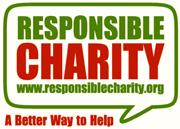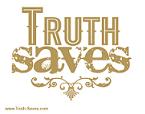Posts Tagged ‘PR’
Humanism PR Advice: Drop the “Secular”
There are a lot of Humanist organizations and individuals out there who insist on calling themselves “Secular Humanist” rather than just “Humanist”.
While it’s easy to see why (since most Humanists are rather well-educated, many of them have a little fetish for academic accuracy), I do not think that being meticulously precise is a particularly smart idea in this case. 
So here’s a little PR advice: Drop all qualifiers. Do realize that most people on the street have never even heard of the term “Humanism” before. That fact alone is enough to make it the smarter move to present a united front to the public, as uncomplicated as possible.
Humanism is fine as it is.
From a PR point of view, “Humanism” is already a brilliantly chosen name. Most people who’ve never heard it before can already guess that it’s a somewhat humanitarian idea, and this is a positive association that we should strive to maintain at all cost. The same is true for the “Happy Human” symbol: It’s perfect. Don’t fix what ain’t broke. The name and the symbol give exactly the right impression, and that, as any PR-pro will tell you, is worth incredibly much.
Disassociating ourselves from “religious” Humanists isn’t worth it.
I am aware that there is a recognized form of religious Humanism out there. But if you google “Humanism”, if you look it up on Wikipedia, or any encyclopedia, they are not what comes up first. We are. Humanism is in itself a secular idea: The name itself makes it perfectly clear that humans are what it’s all about, not deities or other allegedly “higher” ideals. We, the secular ones, are the mainstream of Humanism, and calling ourselves “secular” or “agnostic” Humanists is to surrender that, to leave the term for others to claim.
Again: We are the mainstream. If the few religious Humanists do good, it will be free PR for us. If they don’t want that, fine. Then we ought to leave it up to them to disassociate themselves from us, not the other way round. What we most definitely should not do is to surrender our brand, our trademark, just because we don’t want a few modern, liberal and harmless theists on our side.
POST SCRIPTUM: Some people seem to have misunderstood what I was getting at. My aim was never to play down the role of secularism or criticism of religion. Both are deeply necessary, and if you are familiar with this blog you know that I spent some serious time debating faith-heads and arguing against religious tenets, religious organizations, and even wrote a post pointing out the damage that is caused by even the most moderate and liberal theistic belief.
But Humanism has an agenda. We strife to change our society, even all societies. This entails the pursuit of very concrete political goals, and to achieve those goals as a group of non-government organizations, we have to think practical. The various religious communities around the globe have demonstrated what a lobbyism can achieve in nominatively secular democracies. Non-believers are usually ignored, and the majority of them is completely unaware of all the religious privilege they unknowingly sponsor with their tax-dollars.
So there is a dire need for a Humanist lobby. Religious organizations are crumbling, their numbers dwindling, and Humanism needs to demonstrate its ability to fill the gap.
In a democracy, the political power comes with the number of people one can claim to represent. Humanist organizations are in need to gain some weight to toss around in the political arena. This is the reality of the situation that we need to face. To put it in radical terms: We have a product to sell on the market place of ideas, and the competition is hard. We need to awaken interest and cater to the masses. This is not a simple task, but there are known and proven ways to get there. From this point of view, the “secular” is not only superfluous, but even counterproductive and damaging to our cause.
Yes, it is important to criticize religion. But it is important as a result of the values we hold, because it is a cause of suffering, and at the same time poses one of the largest obstacles on the road to societal change and progression.
Criticism of religion is thus important purely for practical reasons, and has no inherent value of its own. It is not, by itself, a core principle of Humanist thought, but merely a result of it.
My donations to charity, too, are results of my Humanist values. Like criticism of religion, they are not by themselves a tenet of my creed, but merely a means to the end of alleviating suffering. Like my loud and uncompromising secularism, donating to charity is something my Humanism compels me to do, but not by themselves the center of my Humanistic thinking.
The reason I don’t call myself a “secular” Humanist is the same reason I don’t call myself a “donating” Humanist.


